Kamagra gibt es auch als Kautabletten, die sich schneller auflösen als normale Pillen. Manche Patienten empfinden das als angenehmer. Wer sich informieren will, findet Hinweise unter kamagra kautabletten.
Nt.swimming.org.au
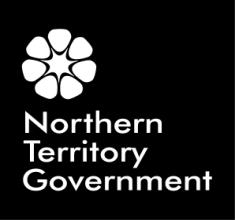
NORTHERN TERRITORY INSTITUTE OF SPORT
Northern Territory Institute of Sport
Sports Supplement Guidelines
(as at 24 May 2013)
Overview
- This NTIS Sports Supplement Guidelines document provides advice and direction on use of
supplements for NTIS athletes, coaches and service providers. The Guidelines follow
recommendations made by the AIS Sports Supplement Panel, whose membership includes people
playing key role in the AIS and Australian Sports Commission (ASC) environments which intersect with supplement use by Australian athletes.
- The activities of the AIS Sports Supplement Panel are offered to National Sporting Organisations and
member of the National Institute Network in Australia (of which the NTIS is a member) via a non-
exclusive, royalty free licence.
- The AIS Sports Supplement Panel communicates its activities and resources principally via the AIS
Sports Nutrition website which provides free and transparent information to internet users.
The NTIS Sports Supplement Guidelines have been designed for the specific needs of NTIS
athletes. It is recommended that other Northern Territory athletes and groups seek
independent advice before using any supplement.
Supplements can assist NTIS athletes achieve peak performance. However, poor regulation of the
supplement industry allows athletes to be bombarded with marketing hype that exaggerates or completely invents unproven benefits arising from the use of supplements. Unfortunately, the driving
force behind the supplement practices of many athletes is not sound science applied to the specific
needs of the sport. Instead, some athletes are motivated by fear that their competitors might be taking
supplements and they cannot afford to miss out on any ‘performance edge'. The results of the present frenzy of sports supplements are:
- a small but real risk of a positive ‘doping' outcome;
- money being wasted on products that simply do not work; - time, money and belief being distracted away from the factors that can really enhance health,
recovery and performance; and
- the use of supplementation before it is truly beneficial when good training and nutritional
habits have been established.
The NTIS Sports Supplement Guidelines aim to:
- Accurately determine if an athlete is ready to consider supplementation;
- Allow athletes to focus on sound use of supplementation and special sports foods as part of
their special nutrition plans;
- Ensure that supplements and sports foods are used correctly and appropriately to deliver
maximum benefits to the immune system, recovery and performance;
- Give athletes the confidence that they receive appropriately qualified advice and are complying
with evidence-based nutritional practices;
- Minimise significantly the risk of supplement use leading to an inadvertent doping offence; and
- Support approval processes and tracking of supplement use by NTIS athletes.
DEPARTMENT OF SPORT AND RECREATION
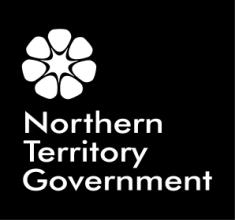
NORTHERN TERRITORY INSTITUTE OF SPORT
Classification
In line with the AIS Sports Supplement Program, supplements are classified into four groups
according to their effectiveness and safety.
The table below outlines the categories and their associated supplements. Unless otherwise guided by
the AIS Sports Supplement Program, only Group A supplements will be considered for use by NTIS NT
based athletes. Refer Attachment A for further details on the 4 groups of supplements.
Category
Supplements
- Supported for use in specific situations in sport.
Sports confectionary
- May be recommended for use by NTIS athletes if
specific criteria are met.
Sports bars Calcium supplements
Iron supplements
Vitamins or minerals Electrolyte replacements
- Deserving of further research.
Beetroot juice/nitrate
- Considered for provision to athletes Anti-oxidants C and E
under a research protocol (NTIS Carnatine athletes may potentially be considered HMB
in AIS research protocols).
Probiotics for immune support Other polyphenols as anti-oxidants and
anti-inflammatory
- No or insufficient meaningful proof of Lactaway
beneficial effects.
- Not recommended to NTIS athletes.
Vitamins outside of category A use
Other herbals (cordyceps, rhodiola rosea) Glucosamine
Chromium picolatine
Oxygenated waters
DEPARTMENT OF SPORT AND RECREATION
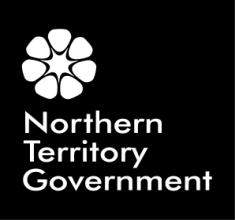
NORTHERN TERRITORY INSTITUTE OF SPORT
- Banned or at a high risk of Strychnine
Methylhexanamine Other herbal stimulants
19-norandrostenione/ol Other pro-hormones
Tribulus terretris Other testosterone boosters
Note: HMB = beta-Hydroxy beta-methylbutyrate; MCT = medium-chain triglyceride; ZMA = Zinc monomethionine and
aspartate and Magnesium Aspartate; DHEA = Dehydroepiandrosterone; ol = 9-norandrostenol
Identifying Athletes for Supplementation
The NTIS Sports Supplement Guidelines do not automatically recommend Group A supplements to athletes. Use of supplements is voluntary and only recommended to athletes that pass strict criteria.
Failure to meet all parts of the criteria will result in supplements use not being recommended or
supported by the NTIS. The criteria will be evaluated by relevant personnel from all discipline areas
within the NTIS Athlete Services unit.
The criteria for supplement consideration is the following:
- Athlete Driven: As a matter of course, only athletes who show an interest in supplementation
will be considered. No athlete will be expected to use supplements as part of their involvement at the NTIS.
- Good Training Habits: The athlete must be identified by the coach as being a committed
trainer with a strong possibility of progressing to higher levels within their sport. The athlete
must be consistent in their approach to training. The athlete must be coach-able and willing to work on all aspects of their performance.
- Strong Training Base: In addition to the qualities identified by the coach, the athlete must be
identified by his/her strength and conditioning coach as having a strong training base, as well
as good stability, mobility and flexibility, and has shown progression in their physical characteristics.
- Sound nutritional habits: The athlete must be able to demonstrate to the NTIS sport
nutritionist that he/she has sound dietary habits and has a thorough understanding of the need
for good nutrition to improve performance.
- Medical Clearance: The athlete must be able to demonstrate that they have no other medical
issues that may be adversely impacted by supplementation, or have injury issues that require
Supplementation Approval Process
All athletes being considered for scholarships with the NTIS will need to declare all
therapeutic/prescribed medications, multivitamins, minerals and supplements that are being used. This declaration is to be made on the medical screening form.
DEPARTMENT OF SPORT AND RECREATION
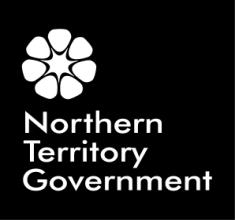
NORTHERN TERRITORY INSTITUTE OF SPORT
During the term of the scholarship, the following process must be adhered to by all athletes considering supplementation:
1) An athlete expresses an interest to their head coach or service provider.
2) The athlete's training base as well as training and nutritional habits are assessed by relevant
Athlete Services staff (typically the nutritionist and strength and conditioning coach) and head coach.
3) A recommendation is made and submitted to the NTIS Physiotherapist and Sports Medicine
Coordinator (PSMC) who, based on review of all relevant issues, approves supplement use or
a. If approved, the following details are determined and recorded, on the NTIS
Supplementation Register, by the PSMC:
1. The purpose for which the supplement is required.
2. Actual supplement(s) approved. 3. The recommended dosage.
4. Duration of supplement use and date of review by PSMC.
5. NTIS staff members responsible for monitoring supplement use (e.g. head coach,
strength and conditioning coach).
b. If not approved, the athlete is informed by the PSMC (with appropriate justification and
education provided), and no further action should be required.
4) The athlete, and staff responsible for monitoring, must update the PSMC of any changes to
supplement use, including dosage.
DEPARTMENT OF SPORT AND RECREATION
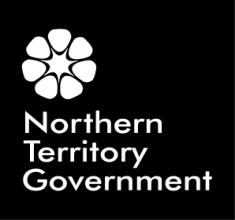
NORTHERN TERRITORY INSTITUTE OF SPORT
SUPPLEMENT CLASSIFICATION
Group A Supplements
Group A supplements are supported for use in specific situations in sport and may be recommended
to NTIS athletes.
These supplements:
1. Provide a useful and timely source of energy and nutrients in the athletes diet;
2. Have shown in scientific trials to benefit performance, when used according to a specific
protocol in a specific situation in sport; and
3. Are safe for use in recommended doses.
The table below outlines current Group A supplements. Fact sheets will be provided if an athlete is
identified and shows interest in using the supplementation. These fact sheets can also be found on the AIS Sports Nutrition webp
Group A Supplements
Sports confectionary
Calcium supplements
Iron supplements
Multi-vitamins or minerals
Electrolyte replacements
Group B Supplements
Group B supplements are deserving of further research and considered for provision to AIS athletes
only under official research protocol. These supplements are presently not recommended for NTIS
athletes except as part of an approved AIS research project.
These supplements:
1. Have received some scientific attention, sometimes in populations other than athletes, or have
preliminary data which suggest possible benefits to performance;
2. Are of particular interest to athletes & coaches; and 3. Are safe for use in recommended doses.
DEPARTMENT OF SPORT AND RECREATION
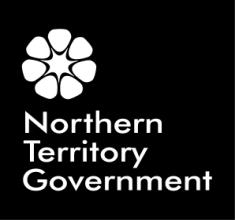
NORTHERN TERRITORY INSTITUTE OF SPORT
The table below outlines current Group B supplements. Fact sheets will be provided if an athlete is identified and shows interest in using the supplementation. These fact sheets can also be found on the
AIS Sports Nutrition webp
Supplements
Beetroot juice/nitrate
Anti-oxidants C and E
Probiotics for immune support
Other polyphenols as anti-oxidants and
anti-inflammatory
Group B supplements will only be recommended to NTIS athletes under the following conditions:
- As part of an approved, supervised study or trial involving placebo/control groups and
adequate monitoring of performance or health benefits;
- Clinical management plan overseen by AIS doctor or NTIS medical supervisor, including the
provision of the supplement to the athlete and adequate monitoring; and
- Inadvertent doping risk of Group B supplements is carefully considered before approval.
Although Group B supplements are not illegal, their use by athletes outside of these guidelines is not
recommended by the NTIS and their use is the responsibility of the athlete or sporting body.
Note. National Institute Network Research Protocols: All research trials carried out by the National Institute Network (state & territory institutes and academies and the AIS) are subject to strict,
independent ethics review to ensure safe practices. These trials often require additional university
Group C Supplements
Group C supplements have little proof of beneficial effects and are not recommended to NTIS athletes. This category includes most supplements and sports products promoted to athletes. These supplements, despite enjoying a cyclical pattern of popularity and widespread use, have not been
proven to provide a worthwhile enhancement of sports performance. Although it is not possible to
categorically state that they do not work, current scientific evidence shows that either the likelihood
of benefits are very small or that any benefits that occur are too small to be useful. In fact, in some cases, these supplements have been shown to impair sports performance, with a clear mechanism to
explain the results. A number of the products that belong in this category are named here, but many
others not named in this supplement system are more than likely to belong here.
The table below outlines current Group C supplements. Fact sheets will be provided if an athlete is identified and shows interest in using the supplementation.
DEPARTMENT OF SPORT AND RECREATION
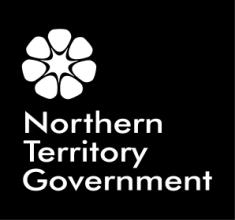
NORTHERN TERRITORY INSTITUTE OF SPORT
These fact sheets can also be found on the AIS Sports Nutrition webpage
Supplements
Vitamins outside of category A use
Other herbals (cordyceps, rhodiola rosea)
Chromium picolatine
Oxygenated waters
In the absence of proof of benefits, Group C supplements are not recommended to NTIS athletes.
Group D Supplements
Group D supplements should not be used by NTIS athletes under any circumstances.
These supplements are banned or are considered to be at very high a risk of being contaminated with
substances that could lead to a positive drug test.
The table below outlines current Group D supplements.
Supplements
Methylhexanamine
Other herbal stimulants
19-norandrostenione/ol
Other pro-hormones
Tribulus terretris
Other testosterone boosters
DEPARTMENT OF SPORT AND RECREATION
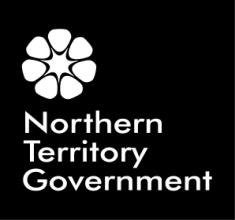
NORTHERN TERRITORY INSTITUTE OF SPORT
Sports Food and Drinks within Group A Supplements
Certain sports food and drinks within Group A supplements may be recommended to athletes as an
acceptable base-line ‘nutritional strategy' without necessarily going through the supplementation approval process. When indicated and used as directed these can assist to meet the needs of athletes.
Some of these include the use of Sports Drinks and Liquid Meal Supplements.
Sports Drinks:
The consumption of sports drinks (e.g. Gatorade and Powerade) as a timely method of fluid and
nutrient replenishment is common place and encouraged in elite sport and at the NTIS. NTIS
scholarship holders are encouraged to consume sports drinks under the following guidelines:
Summary of Fluid Guidelines
• Begin each exercise session in fluid balance. This requires drinking regularly throughout the day
leading up to training or competition. Have a drink with all meals and snacks.
• Immediately, before exercise commences, consume 200-600 ml of fluid. • Develop a plan for fluid intake for all exercise sessions longer than 30 minutes.
• Aim to match previous fluid losses as closely as possible (within 1% of body mass). Take into
account all the opportunities within the sport.
• Begin drinking early in the exercise session and continue to drink small amounts regularly. Sports
drink or water are the best options.
• Replace any residual fluid deficit after exercise. You will need to drink 150% of any fluid deficit in
the 4-6 hours after exercise to account for ongoing sweat and urinary losses. When fluid losses are
high and/or rapid rehydration is required, sodium replacement may be required. Sports drinks,
oral rehydration solutions and salty foods can all contribute to sodium replacement.
What can the coach do?
Drinking during exercise does not come naturally to athletes. It is a skill that needs to be developed and practiced. Coaches can help athletes by:
• Recognising the importance of fluid replacement during exercise and creating a supportive
• Arranging for athletes to be well educated regarding hydration. • Assessing fluid balance during training sessions to help athletes determine individual fluid losses.
• Helping athletes prepare a fluid replacement plan for training and competition
• Incorporating drink opportunities during training.
• Providing cool, flavoured, palatable drinks which are readily accessible during training and
competition or establishing team rules designed to encourage fluid intake - i.e. all athletes must
bring suitable fluids or a drink bottle to training.
• Allowing athletes to practise and fine tune fluid replacement strategies during training in
preparation for competition.
• Periodically monitoring fluid balance to create an awareness of whether athletes are meeting fluid
replacement goals.
DEPARTMENT OF SPORT AND RECREATION
NORTHERN TERRITORY INSTITUTE OF SPORT
Guidelines for how much fluid to drink during exercise
Time Before/During/After Exercise
Amount to Drink
1 to 2 hours and 30min
500 mL of cold fluid
250-500 mL of cold fluid
Every 15 to 20min
100-200 mL of cold fluid
Immediately post (within 30min)
150% of body mass lost e.g. 1kg fluid loss
= 1.5L ingestion of cold fluid
After exercise and the next day
Have fluid readily available and drink
NB. This is a guide only to fluid volumes. With an individualised fluid balance plan prescription of fluids can be more
accurately tailored to specific needs.
Liquid Meal Supplements:
Liquid meal supplements are carbohydrate-rich, moderate protein, low-fat powder (or liquid) products which when mixed with water or milk provide an energy and nutrient-rich dietary
There are a range of liquid meal supplements available (e.g. Sustagen powder/tetrapak, Sanitarium
Up and Go, Ensure). Products often have differentiating characteristics including the amount/type of key macronutrients protein and carbohydrate, fat and fibre content, flavours, fortification with
vitamins and minerals and the presence of other "active ingredients".
When used to achieve goals of sports nutrition, liquid meal supplements may enhance training adaptations or competition and can be used in a number of scenarios to provide a practical form of
energy and blend of macronutrients. However, they can often be overused due to its convenience
factor, leading to inappropriate replacement of whole foods and over-reliance on an expensive
alternative. It can also be less satiating than whole foods leading to over-consumption of kilojoules and unwanted weight gain.
DEPARTMENT OF SPORT AND RECREATION
NORTHERN TERRITORY INSTITUTE OF SPORT
Signing Page:
I have read, understood and agree to abide by the terms of the NTIS Sport Supplement
Guidelines (2013).
Signature:
Full Name:
(Tear off and return this signing page to the NTIS once complete)
DEPARTMENT OF SPORT AND RECREATION
Source: https://nt.swimming.org.au/visageimages/About_Us/Constitution_Policies_Rules/NTIS-Sport-Supplement-Guidelines.pdf
EMCDDA–Europol Joint Report on a new psychoactive substance: MDPV (3,4-methylenedioxypyrovalerone) In accordance with Article 5 of Council Decision 2005/387/JHA on the information exchange, risk assessment and control of new psychoactive substances About this seriesEMCDDA–Europol Joint Report publications examine the detailed information provided by the EU Member States on individual new psychoactive substances. Information is collected from the Reitox network, the Europol national units and the national competent authorities of the European Medicines Agency.Each Joint Report serves as the basis upon which the decision to conduct a risk assessment of the new psychoactive substance is taken. It is part of the three-step procedure involving information exchange, risk assessment and decision-making in the framework of the Council Decision 2005/387/JHA.
Action against AIDS Aktionsbündnis gegen AIDS Indian Generics and Aids A Fact Finding Mission in the "Pharmacy of the Poor" Indische Generika und Aids Eine Erkundungsreise in der „Apotheke der Armen" Das Aktionsbündnis gegen AIDSDas Aktionsbündnis gegen AIDS will mit seiner Kampagne das Schweigen über HIV/Aids brechen und setzt sich ein für eine








